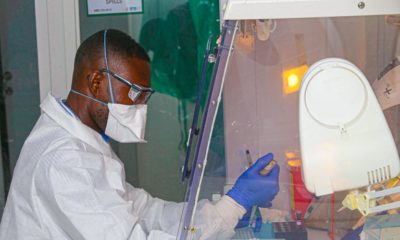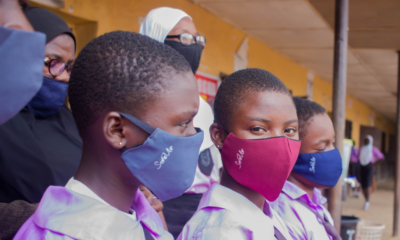News
NCDC Releases Situation Report on Meningitis Outbreak
 The Federal Government, through its agencies; the Nigeria Centre for Disease Control (NCDC), National Primary Healthcare Development Agency (NPHCDA) and partners activated an Emergency Operations Centre on Monday to manage the ongoing outbreak of Cerebrospinal Meningitis.
The Federal Government, through its agencies; the Nigeria Centre for Disease Control (NCDC), National Primary Healthcare Development Agency (NPHCDA) and partners activated an Emergency Operations Centre on Monday to manage the ongoing outbreak of Cerebrospinal Meningitis.
This brings the national response into an Incidence Management System, to ensure that all activities across the country will be managed using a clear command and control structure led by an Incident Manager who reports through the Chief Executive Officer of the Nigeria Centre for Disease Control, to the Honourable Minister of Health.
With this new coordinating structure, the country will have a tight, multi-partner team of experts pulled from the most competent agencies focusing on outbreak control in Nigeria.
The Head of Emergency Preparedness and Response at the NCDC, Dr. John Oladejo, will act as Incident Manager of the response, while experts from the Federal Ministry of Health, NCDC, NPHCDA, WHO, UNICEF, Africa CDC, US CDC, Medecins Sans Frontieres, AFENET, University of Maryland and E-Health Africa take key roles in different units that focus on five key components of the outbreak response. With the new team structure, all CSM outbreak response activities are now being coordinated in one place.
A total of 500,000 doses of Meningitis C vaccines have been distributed to some of the affected States for immediate outbreak response vaccination. An additional 823,970 doses of Meningitis C vaccines are expected from the United Kingdom to support vaccination activities in other affected States.
The EOC will support State-wide vaccination campaign which starts in Zamfara State on Wednesday the 5th of April, 2017. The team will also deploy and coordinate a robust national communication and social mobilization campaign, focused on CSM prevention and control in rural and urban areas of affected states.
As at April 3, 2017, a total of 2,997 suspected cases of CSM have been reported in 16 States in Nigeria, of which 146 have been laboratory-confirmed. Unfortunately, 336 deaths have also been recorded.
We are confident that we have turned the tide, and with increasing vaccination activities, expect a reduction in number of cases. Importantly, lessons learned from this outbreak will help the country prepare for the future.




















